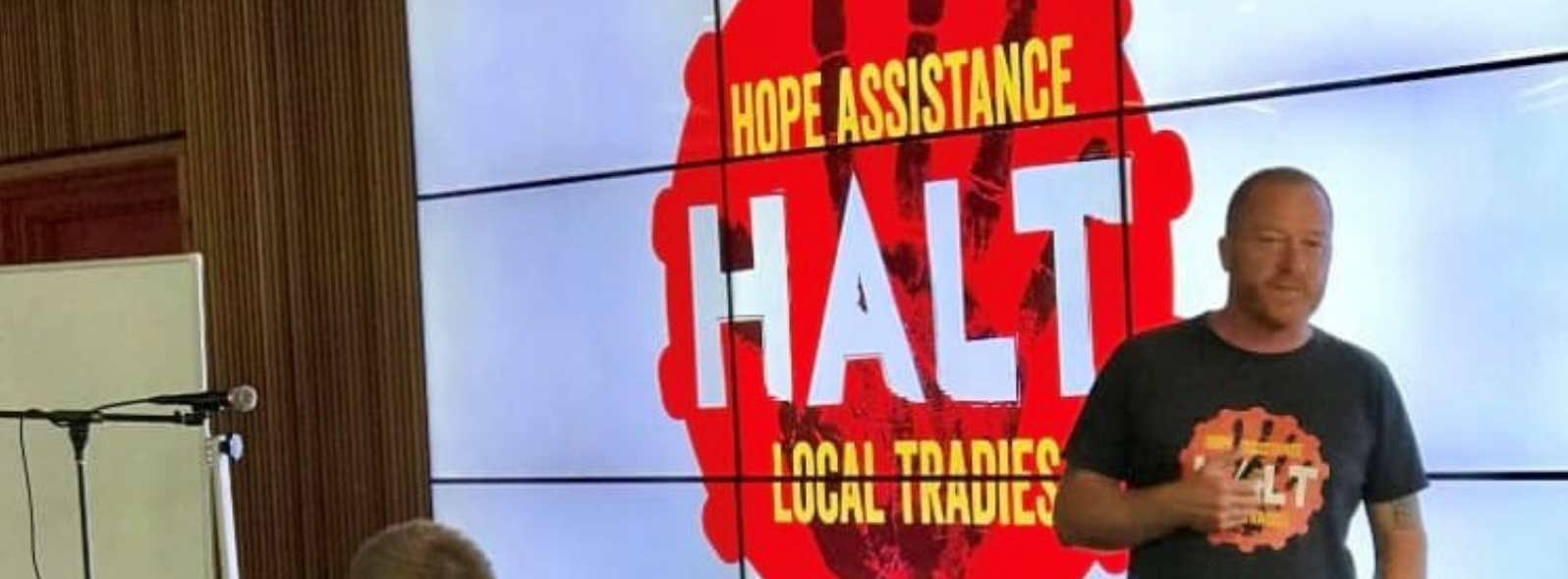For one reason or another, however, we as a society choose to deem certain groups of people as being ‘less at risk’ or ‘ill-fitting’ of developing mental health issues. One of these groups are our tradies. A culture has bled into the industry in which workers – predominantly men – are burdened with expectations of being too tough or too brave to suffer from pedestal-dropping conditions such as anxiety and depression.
This stigmatism has resulted in the silencing of various afflicted tradies, many of whom, with no perceived avenues of relief, tragically see suicide as their last recourse. It is because of this issue that organisations have sprung up to raise awareness about men’s health by subverting these constructed stigmatisms. One of these organisations is HALT: Hope Assistance Local Tradies.
Where HALT Came From
In December of 2017, a TED talk was held in Sydney in which fifteen influential people from across Australia were invited to speak. Jeremy Forbes, co-founder of HALT, spoke about the importance of integrating a ‘whole-of-community’ approach in promoting suicide prevention. In his speech, he explained the origins of HALT, and how they stemmed from an epiphany he had after the suicide of a colleague. He explained the ‘ripple effect’ it has on communities, leaving them with ‘no answers’, and even asking, ‘Who’s next?’ With suicide rates amongst tradies 2.3 times higher than for other men, the question didn’t sound too far-fetched.
Save Your Bacon
Tradies – and, according to Forbe’s experience, men in general – feel like they do not have the tools available to deal with their mental health issues. They are unaware that they can try resolve their suffering by perhaps calling Lifeline, Mensline, or even visiting their local GP to receive a mental health plan. In order to combat this, HALT are holding events known as ‘Save Your Bacon’; breakfasts held at hardware stores around the country. With over 150 events held across 4 states, the premise is to offer a space that doesn’t require anything from attendees, merely provide insight and avenues to both train people to be more receptive to their peers who might struggling, or lend an ear if someone needs to share.
Moving Forward
In his TED talk, Forbes explained how ‘empowering and cathartic’ it can be not only by speaking about your issues to a group, but also by offering your time to listen without judgement. He explains that it isn’t enough merely to ask if someone is ‘okay’. Society needs to come together and develop new norms that revolve around acceptance, encouragement, and connectivity.















